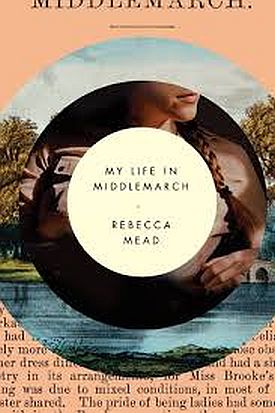Geography Lessons
From The New CriterionBarbarossa in fake gold
During the closing months of the old year, as I saw article after article in the old media, especially The New York Times, attacking the new media, especially Facebook, I couldn’t help wondering if there were not a certain overconfidence behind their offensive. Perhaps some editor at the paper, mindful of the rise in on-line subscriptions to the Times and other avowedly anti-Trump organs and full of rosy if still uncertain expectations of a damning report forthcoming from Robert Mueller, had persuaded the powers that be that their campaign against the president was all but won and they could turn to a new enemy before having quite subdued the old one.
Could this be the Times’s own Operation Barbarossa? That, as you will remember, was the code name given to the German invasion of Russia in 1941 when Adolf Hitler, having grown drunk with power and the confidence born of previous successes, made the catastrophic mistake of opening a second front in his war for global domination before defeating a still dangerous Britain, and her Empire, and her potential American allies, in his rear. In the case of Facebook and other so-called “social media,” the temptation for conservatives must be to take Henry Kissinger’s view of the Iran-Iraq war of the 1980s and hope that somehow both sides in this new struggle can lose, but it might be more realistic for embattled Trumpsters to take Churchill’s approach and welcome the devil himself as an ally against the ideological totalitarians of the established media, who are the more immediate threat.
Unfortunately, Facebook etc. are unlikely to want or need any allies in what increasingly appears to be an unequal struggle against the media establishment they are in the process of replacing. Not not only are the new media hardly more sympathetic to conservatives, let alone the Trump-ites, than The New York Times or CNN, they have less to fear from the waning power of the old media than Republicans, who have grown so accustomed to cringing before their onslaughts that it has become second nature to them. That’s why Mr Trump came as such a rude shock to them: he was the only Republican who fought back. Moreover, although the ostensible casus belli in the attacks on social media is the elite’s firm conviction that Facebook’s cooperation with Cambridge Analytica in 2016 helped to elect the hated Mr Trump, the antagonism between old and new media, especially on the old media side, has much deeper roots — and much greater potential for harm for the established media and the larger establishment of which they are a part.
In a 10,000 word article for The London Review of Books before Christmas, James Meek set out the origins of this antagonism.
There were high hopes that [The Guardian’s] extraordinary expansion in readership around the world, particularly in America, would lead to a corresponding boom in US advertising: that being able to market millions of readers to advertisers, rather than the hundreds of thousands who read it in the pre-internet days, would compensate financially for the loss of income from plummeting print circulation and its refusal to put up a paywall. But just when the Guardian seemed poised to take advantage of its new reach, the digital advertising market got swallowed up by Facebook and Google, internet phenomena that weren’t so much websites as technology platforms created to profit from the content of others. The era of programmatic advertising arrived. It’s hard to convey the strangeness of programmatic advertising. As Carl Miller describes it in The Death of the Gods: The New Global Power Grab, ‘You do not buy space in a particular publication; you buy space in front of a particular kind of person, wherever they happen to go on the internet.’ . . . In the mid-2010s big news publishers that had just begun to think they might have righted the ship found themselves obliged to run Google or Facebook advertising scripts on their sites which, after the giants took their cut, left them with a pittance. In 2017, the duopoly took 63.1 per cent of the total digital ad spend in the US; the figures in Britain are believed to be comparable. More recent figures show a dent in the Google-Facebook rise, but only to the benefit of other internet giants like Amazon and Snapchat.
When you add to the new media’s greater appeal to advertisers their lower costs and greater maneuverability as aggregators rather than originators of content you can see why the great lumbering beasts of the legacy media with their comparatively enormous overheads would regard the new media as existential threats.
Yet for all the acuteness of his analysis of media economics, Mr Meek suffers from a typical case of blindness on the part of the media to their own part in driving away potential customers. He comes close to a juster view of the subject when he writes, possibly paraphrasing David Kolbusz, that “Open journalism was based on the idea that non-journalists would help news organisations navigate their way to an objective truth, when the world we’re actually in is one where different sets of people subscribe to different geographies of truth altogether.” Like most media-folk, however, he seems to regard his own position on the truth-map as the only true one. This is basically that of the privileged class represented by The Guardian’s readership, identified by himself as “the hundreds of millions of university-educated, left-leaning, avowedly tolerant, socially concerned people around the world — global liberaldom, for want of a better expression.”
His idea of “geographies of truth” seems to correspond to what I wrote about in this space last year (see “Constituting Truth” in The New Criterion of September, 2018) as “constituencies of truth” or what Michel Foucault, who was more kindly disposed toward them than I am, called “régimes of truth.” Under any name, you would think that the idea must represent at least the glimmering of an understanding that at some point the media are going to have to come to terms with the fact that it is not only Hillary Clinton’s “basket of deplorables,” a vicious minority written off as beyond redemption anyway, who don’t take it for granted that the media are automatically to be considered the arbiters of truth tout court. Such, however, appears not to be the case. Elsewhere, Mr Meek’s flickerings go out, as when he cites “the Russian election interference scandal in the US and the Cambridge Analytica affair in the UK” and sounds the usual media notes of outrage.
It’s a familiar posture among good-faith left-wingers who try to write with a modicum of honesty, rather than strict ideology, about our changing political landscape. Elsewhere, in the Guardian itself and at about the same time Mr Meek was writing, William Davies managed to get through almost 6000 words of a “Long Reads” article on declining trust in “elites” without so much as a word of criticism against his own bit of the elite, the academic and journalistic one. He was willing to go so far as to admit that “There are copious explanations for Trump, Brexit and so on, but insufficient attention to what populists are actually saying, which focuses relentlessly on the idea of self-serving ‘elites’ maintaining a status quo that primarily benefits them.” This is news to Guardian readers, apparently. Yet in taking the populist objections seriously, he somehow never sees himself or his friends in the media as being among these “self-serving ‘elites’” — which are kept safely at a distance from reality as well as from himself by quotation marks.
The elites he is willing to condemn include social media, crooked politicians, security forces, bankers, big business and even p.c. politicians who allow criminal behavior to go on for fear of being called “racists” (see “The irony of p.c.” in The New Criterion of March, 2015). But among journalists, only a now-shuttered (and Murdoch-owned) tabloid newspaper and, in one instance, the BBC are said to have besmirched the good name of the elite — and these were exposed by the more respectable sort of journalists. There is a noticeable dearth of criticism directed at “university educated, left-leaning, avowedly tolerant, socially concerned people” like, say, Mr Davies and other members of an academic elite which prides itself on its rhetorical anti-elitism. Self-criticism, like paying taxes in the view of Leona Helmsley, is only for the little people. Why, even Jill Abramson appeared, at least for a moment, to have been able to recognize the damage her former employers at The New York Times have done to their and its credibility by being so “unmistakably anti-Trump” in their reporting and analyzing of the news — not that she is any more mistakably anti-Trump herself. As Howard Kurtz reported at Fox News after seeing an advance copy of Ms Abramson’s book, Merchants of Truth:
Abramson defends the Times in some ways but offers some harsh words for her successor, Dean Baquet. . .”Though Baquet said publicly he didn’t want the Times to be the opposition party, his news pages were unmistakably anti-Trump,” Abramson writes, adding that she believes the same is true of the Washington Post. “Some headlines contained raw opinion, as did some of the stories that were labeled as news analysis.” What’s more, she says, citing legendary 20th century publisher Adolph Ochs, “the more anti-Trump the Times was perceived to be, the more it was mistrusted for being biased. Ochs’s vow to cover the news without fear or favor sounded like an impossible promise in such a polarized environment.” Abramson describes a generational split at the Times, with younger staffers, many of them in digital jobs, favoring an unrestrained assault on the presidency. “The more ‘woke’ staff thought that urgent times called for urgent measures; the dangers of Trump’s presidency obviated the old standards,” she writes. Trump claims he is keeping the “failing” Times in business — an obvious exaggeration — but the former editor acknowledges a “Trump bump” that saw digital subscriptions during his first six months in office jump by 600,000, to more than 2 million.
All this would hardly count as news in a sane media environment, as the truth of it has long been obvious to the meanest intelligence which is still unencumbered by the ideological blinders worn by pretty much everybody in the news business these days. The words quoted by Mr Kurtz above may amount to the most sustained piece of honesty Ms Abramson has been guilty of in her lifetime — and yet she couldn’t hightail it fast enough to Politico in order to disavow it all:
Former New York Times editor Jill Abramson says Fox News host Howard Kurtz took her forthcoming book, Merchants of Truth, “totally out of context” in his Wednesday report headlined, “Former NY Times editor rips Trump coverage as biased”. . . “His article is an attempt to Foxify my book, which is full of praise for The Times and The Washington Post and their coverage of Trump” [Ms Abramson said.]
With the clever coinage “Foxify” Ms Abramson of course alludes to the obligatory left-wing axiom that anything said on the Fox network is not to be trusted because it is not in harmony with what is being said on all the other networks, but it is also a reiteration of the equally axiomatic but insanely arrogant proposition that anything said by those — like herself — who are so in harmony is to be trusted implicitly, even if it is blatantly self-contradictory or obviously false.
A similar arrogance was apparent in The Washington Post’s granting a forum to a transparent bit of self-puffery from the incoming junior senator from Utah, Mitt Romney, publicly to thank his Mormon God that he is not as the particular sinner now sitting in the White House — where, by the way, he should have been instead. Of course it was all just grist to the media’s Trump-discrediting mills, but how drunk with self-importance do you have to be to imagine that people can’t see through this kind of thing and take it all at face value, as if the Post expected former Trump supporters all over the country to be saying, “I never thought of it before, but now that that nice Mr Romney mentions it, I do think someone like him would have made a better president”?
Or consider the New York Times report by Jonathan Martin, Maggie Haberman and Alexander Burns on the reactions among Republicans to Senator-elect Romney’s op-ed:
Senator Rand Paul of Kentucky, viewing Mr. Romney’s offensive as an opening to nurture his ties with the media-obsessed Mr. Trump, scheduled an afternoon conference call with reporters to target his soon-to-be colleague. “I just don’t think the president deserves to have a new senator coming in attacking his character,” said Mr. Paul, accusing Mr. Romney of acting “holier than thou.”
Of course the Times, like the Post, was trying to get the maximum possible ink out of Mr Romney’s attack on the president — as Mr Romney must have been smart enough to know they would. But look at that curious explanation of Senator Paul’s attack on Senator Romney’s attack “as an opening to nurture his ties with the media-obsessed Mr Trump.” Grammatically, “his ties” must refer to Mr Romney’s ties, but this makes no sense. How could Mr Romney be nurturing his ties — ignoring for the moment the fact that “ties” are not among the things in nature that can be nurtured — to the president by attacking him? What the writers must mean, though they haven’t said it, is either that the “ties with the media-obsessed Mr. Trump” to be nurtured are Senator Paul’s ties or, as I believe, that Mr Martin (or Ms Haberman or Mr Burns) originally wrote not “the media-obsessed Mr. Trump” but “the Trump-obsessed media” — and then Ms Haberman (or Mr Martin or Mr Burns) changed it, sacrificing accuracy and even sense to the media’s pretense that they are not themselves involved in this squabble between Republicans but are merely silent observers of it.
Such denials of the obvious began with the media’s denials of their own biases and have now spread to much worse things than mere bias. They have also spread to other branches of the elite, the loss of trust in which Mr Davies laments. When Chief Justice Roberts rebuked the president merely for stating so obvious a fact as that the judiciary in our time has been politicized — what did he think the lately-concluded Kavanaugh hearings were all about? — and then stuck so firmly to his absurd contention that we don’t have Democrat or Republican judges, even to the point of rewriting the Constitution to limit the powers of a Republican president, you have to feel something close to despair that the public’s trust in their rulers, official or unofficial, can ever be restored. I’m inclined to believe that the only way we can all be brought together again, as Mr Romney claimed to want, is by ceding all political authority to those whose motto, it is said, used to be: “Don’t be evil.” It is at least as possible to believe that they won’t be as that the media will start telling the ungeographized truth again, or that judges will cease being political.
Discover more from James Bowman
Subscribe to get the latest posts to your email.







